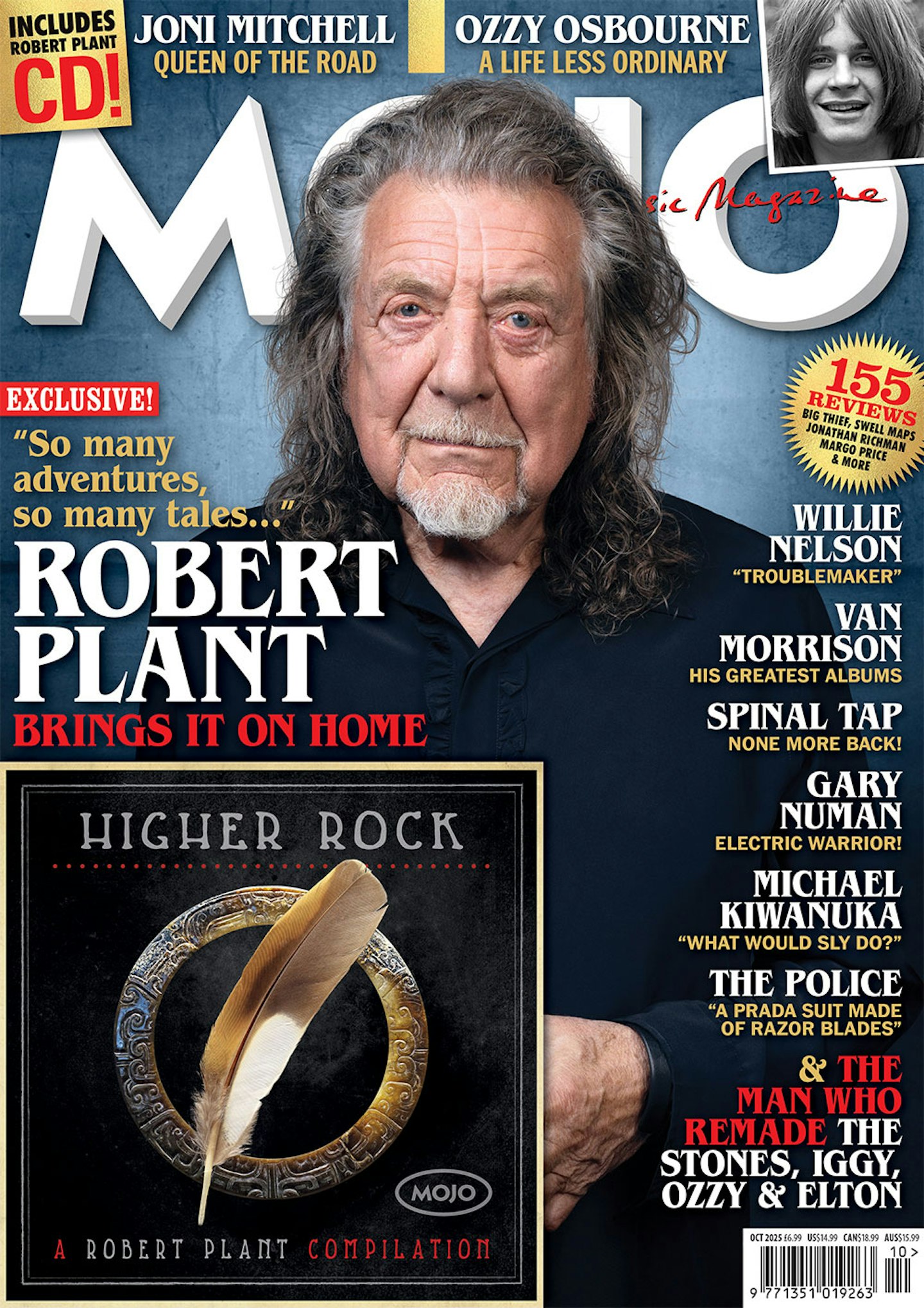Speaking in the latest issue of MOJO, on sale now, Gary Numan recounts his journey from the leader of London punk outfit Tubeway Army to Top Of The Pops, via the creation of his two best-loved hits and explains his surprise decision in 1981 to retire from live performance.
-
READ MORE: Gary Numan Live At Glastonbury Reviewed: Electropop’s gloomlord is no downer at Worthy Farm
Hammersmith-born Numan had initially wanted to be a pilot at school (an ambition he would later fulfil when he was granted a private licence and launched his own airline, Numanair, in the ‘80s), but after switching his ambitions to music, he joined local punk band The Lasers, quickly took charge and changed their name to Tubeway Army.
Beggars Banquet boss Martin Mills had been impressed with the demo Numan had brought to his record shop on Ealing High Street and offered them a deal. However, when the singer discovered a synthesizer in the studio while recording the group’s debut album, 1978’s Tubeway Army, he quickly re-charted the band’s course.
“We were definitely a punk band when we signed, but I felt punk was on its way out,” Numan tells MOJO’s Andy Cowan. “Everything changed when we recorded Tubeway Army and I found a Minimoog in the corner. I was desperate to get something electronic out there, to put my marker in the ground.”
The album soon sold out its limited run and the band quickly started work on the follow-up, Replicas. “We recorded Replicas almost immediately, all in one week. We only had three or four days to synthesize it, so it was very much find a sound and record it in one take,” recalls Numan. “There are mistakes all over that record – it speeds up, slows down, there’s weird little bum notes.”
The last track recorded for the album, Are ‘Friends’ Electric?’s unusual lyrics concerned a man and a robot prostitute, inspired by the singer’s reading of J.G. Ballard and Philip K Dick. Released as a single in May 1979, it climbed the charts and went to number one for four weeks, with Replicas following suit.
“It has no conventional markers for a hit,” reflects Numan today. “You can’t dance to it. There’s no chorus. It’s very long. It’s about a really weird subject.”
Having brought electronic music to the top of the UK charts, Numan took the first of several surprise career decisions and decided to break up Tubeway Army. Newly repositioned as a solo artist, he quickly penned what would be his second number one single, Cars. Its thumping synth riff driving another Ballard-inspired lyrical theme: autophilia.
“Cars was the quickest song I’ve ever written – it almost wrote itself,” remembers the singer. “I’d just bought a bass guitar and the first four notes I played were the main riff. There’s other songs that I’ve sweated blood over, but Cars was like a burp. How lucky was that?”
Cars’ parent album 1979’s The Pleasure Principle also went to number one. With Numan’s otherworldly aesthetic inspiring a devoted legion of copycat fans soon to be dubbed Numanoids, he found himself a bona fide pop sensation. However, the level of fame he was now experiencing and the ensuing media backlash from some quarters, coupled with his yet-to-be-diagnosed autism, meant that his dreams of pop stardom were fast turning into a nightmare.
“When I was reading interviews with Marc Bolan and other pop stars growing up, they painted this picture of this very glamorous life. No one talked about the stuff that came with it – the hostility, the death threats, the kiss-and-tell stories, the way the music just becomes a business. A whole world descended on me that I didn’t see coming,” recalls Numan.
“It was just really, really mental. I couldn’t pick up a newspaper without reading something fucking horrible. My brother had to be taken out of school because he was always getting beaten up. Petrol bombs were being put under my mum’s car. You think, All I’ve done is written a song that lots of people liked. How can it generate this much hostility?”
1980’s Telekon would prove to be yet another chart-topping album. Yet Numan was increasingly becoming unable to bear the attendant pop star lifestyle, and announced his retirement from live performance with a series of concerts at London’s Wembley Arena in 1981.
“Back then I blamed everything on touring. It takes me away from home, it creates all this negative press, and it puts me in front of people which I’m really uncomfortable with. I wanted to get out of the burning building,” remembers Numan. “I remember after the final show, when everybody had gone home, I went back on stage, sat down, looked out at the empty hall, and said to myself, “What the fuck have you done?”
“THERE WERE HUNDREDS OF PEOPLE OUTSIDE. AND THEY ALL LOOKED LIKE ME!”
Get the latest issue of MOJO to read the feature in full. More info and to order a copy HERE!

Photo: Alamy
